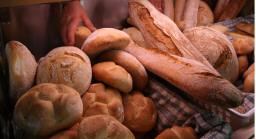Italy is doing its bit to help fight the world food crisis, a leading farmers association, Coldiretti, said on Monday.
As major international institutions announced initiatives to help tackle the soaring cost of food, Coldiretti said Italy had earmarked more land than ever before for wheat production.
An extra 17% of land is being used for wheat crops this year, bringing the total to almost 2.5 million hectares, the association said.
It noted that an extra 18% of land was being used for the cultivation of hard wheat, which has a high protein content, bringing the total to 1.7 million hectares, while an extra 14% had been given over to soft wheat crops.
The association said the additional plantations were so far on track to help Italy respond to the food shortages of recent months, which have resulted in soaring prices, starvation, unrest and riots in many poorer countries.
Meanwhile, the food emergency also fuelled a fresh debate in Italy over the use of genetically modified organisms (GMOs).
Consumer association ADUC said GM crops were the fastest and most effective way to help farmers in developing countries address shortfalls in supply.
''The war in cereal prices means we need to rethink how we approach agriculture,'' said ADUC Secretary Primo Mastrantoni.
''The real problem is not one of health but of cost. Numerous studies promoted and financed by the European Commission have shown that GM crops and derivative products pose no threat to human health or the environment, based on usual risk-assessment procedures''.
But the Confederation of Italian Farmers (CIA) disagreed.
According to CIA President Giuseppe Politi, the industrialized world must adopt a comprehensive approach, helping farmers in developing countries ''improve agriculture through serious and modern cultivation programmes''.
''GMOs will not resolve the agricultural problems of the poorest countries nor are they the panacea for world hunger,'' he added.
According to the World Bank, food prices around the globe have risen 83% over the last three years as a result of shortages of staple crops, such as wheat, rice and corn.
Analysts say a number of factors are to blame for the situation but a drop in production as a result of bad weather and increased demand are the main culprits.
Many have also pointed the finger at biofuel policies of the West, which have resulted in valuable agricultural land being diverted from food crops to fuel crops.
Responding to criticism from several non-governmental organizations, the European Union on Monday said it would continue promoting the use of biofuels but not at the cost of food crops.
It said it would switch its focus to second-generation biofuels, which are created independently of the food chain, using waste agricultural products such as wheat stalks and wood.









